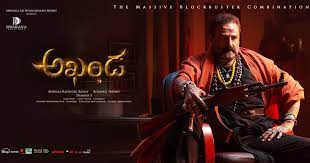Kaikala Satyanarayana is one of the original greats who rose from abject wilderness into a lifespan of limelight that never dimmed until his last breath. There are very few actors in world cinema who can be compared with his range of acting, his repertoire of characters and his filmography from the B&W era to the color era. Not a joke to act in 777 films and have his own inimitable stamp of assertive body language, a timber and tone that is longer than what you hear when a Texas woodsman saws a 350-year-old tree with his lumberjack, and it creates a long noise that’s heard for a long time. Satyanarayana’s laughter is equally intense and that has been the most imitated sound by mimicry artistes. That they could replicate the tintinnabulate sound is a tribute to KS but how he reproduced that sound in between lengthy dialogues are proof of his verbal capacity. At the age that he passed today, eighty-eight, he has outlasted almost all the Tollywood greats who travelled with him and departed before him from SVR to NTR to ANR to Savitri to Gummadi to the trinity stars of Shoban Babu, Krishna and Krishnamraju. His weight in the film’s success was always under-appreciated but nobody could gainsay the intrinsic weight he carried on his own shoulders. That’s why for most of the films where the titles rolled, if Kaikala Satyanarayana acted in the film, his name with all the sobriquets adorning it was usually mentioned at the end (Like “…And Pran”) or in later years, right at the beginning out of veneration to his body of work. It shows Satyanarayana’s stamp of authority on Telugu Cinema that whoever was there in the frame, he cannot be ignored; he was indispensable, and roles appeared custom-built for his versatile range of acting replete with all the nine emotions as they say.
Much has been said in the TV Channels and across the web about Satyanarayana’s astonishing film career. But some points must be noted in his honor for the record of his class and sustained success over sixty years of the Film Industry.
1. Kaikala Satyanarayana transitioned from a dupe to a character actor to an anti-hero and later as a mighty mythological character or as a full-length comic character. Occasionally, he starred as a hero on request from well-wishers and willing producers, but he never let that go to his head. He realized that amidst stalwarts like SVR, Nagoya, Gummedi, Nagabhushanam and Rajababu, he needed to constantly learn and unlearn and improvise and bag roles that defied any classification or typecasting. For example, after “Taata Manavudu” (where he plays the hero along with Rajababu) he could have settled as a hero also with his tall and handsome looks but he chose to remain menacing and evil-minded on the screen because of the huge opportunity for such characters in the 60s and 70s. Somewhere in the late 70s and early 80s, Satyanarayana starred in another film as a hero called “Moratodu Naa Mogudu” (Heroine: Jayasudha) which became a blockbuster hit. Yet, he was grounded and never insisted on hero roles.
2. KS straddled the world of commercial films as well as roles that made him an icon and a role-model hard to match. Whatever be the camera angle, or the storyline or the director’s cut - Satyanarayana always delivered be it as a rapist, sadist, eve-teaser, drunkard, silly son, wise father, father-in-law, irresponsible son, guardian angel, doting uncle, or a father-figure. The success he achieved in any role speaks volumes about his dedication to the acting craft, his theatrical strengths, his baritone voice, and his attention to detail.
3. Very few actors in Indian Cinema looked the part as much as KS and lot of credit must go to his fussiness over makeup. Perhaps taking a cue from SVR and later, his screen buddy NTR, Satyanarayana had the best of makeup support team to distinguish himself on screen and make him a treat to watch whether he is playing Yama, Ghatotkacha, Sher Khan, Mentor (in “Simhasanam”), Duryodhana, Deceiver (“Brindavanam”), or as a charlatan in “Vetagadu”. His looks and his presentation were always a standout and a draw for the film though he never bothered to check how the credit to a film’s success got apportioned to him.
4. During the tricky years of rivalry between NTR and Krishna when they were making films on the same theme such as Mahabharata, KS has the distinction of being the only actor who starred in both “Kurukshetram” (as Duryodhana) and “Dana Veera Soora Karna” (as Brim). Reports say he was as neutral and professional during this phase keeping confidentiality about the projects racing against time, finally released on the same day. In that sense, KS maintained the same stature and earned respect of every generation of heroes and eagerly welcomed them or encouraged them when they appeared on the screen. From NTR to Chiranjeevi to Mahesh Babu (in “Maharshi his last film), KS kept his tryst with every generation of actors. He never needed to lift his little finger to come out trumps against any actor because of his innate abilities in acting but he will leave you with moments and images of his persona in ways that will haunt your imagination while still appearing as non-threatening to co-actors.
5. Subhash Ghai had cast Kaikala Satyanarayana in one of his films. Perhaps “Karma” where KS plays as a bad man opposite Dilip Kumar. Something that shows his stature and his “star value” in non-Telugu films. In K. Viswanath’s films also, KS was one of the regulars and one can take a masterclass in acting from all the roles he played in K Viswanath’s films from “Jeevan Jyothi” to “Shubhalekha” to “Shrutilayalu” to “Janani Janma Bhoomishcha” to “Sutradharulu” and “Apathbandhavudu”, he will be seen in new light - sans swagger and extra-meanness and surrendering himself to the master director. Ditto in films with Bapu (“Sita Kalyanam”, “Sampoorna Ramayanam”, and “Rambantu”), Dasari Narayana Rao (“Thoorpu Padamara”) or K Balachander (“Rudra Veena”) or SV Krishna Reddy (“Ghatotkachudu” and “Yamaleela”). Very rare for an actor to get picked up by so many wonderful directors.
6. KS got the Raghupati Venkayya award for his contribution to Telugu Cinema as an actor and as a producer (making films like “Kodama Simham”). Again, not many character actors received such an honor. Gummed and Allu Ramalingayya were the only other character actors who received this prestigious award. As the standards for the award became tougher, Satyanarayana earned it rightfully in 2011.
7. It takes talent, discipline, and exceptional time-management to wrap up shooting roles in so many films - how Satyanarayana managed ought to be a case study in film studies. In the history of Telugu Cinema, Satyanarayana may have got over-shadowed in popularity by occasional spurt of villains who invent new idioms and idiosyncrasies in voice modulation like Rao Gopal Rao (modulation), or Prakash Raj (intonation) or Kota Sreenivas Rao (accent). But the reasons for eclipsing him are not because he vacated the space of villainy for new entrants. It can be interpreted that he never wanted to be the sole and permanent villain in the Film Industry; he wanted to experiment many roles, get imprinted in public consciousness by playing mythological characters (which requires special talent and demeanor). To that extent, because KS co-acted with NTR in over 100 films and with legends like SVR in over 20 films, he must have studied the art of mastering multifaceted roles from social to folklore to mythology to historical to devotional to comic capers.
8. Tonight, many Indian actors and those who think they are urban legends will regret that they couldn’t act with this phenomenal actor called Kaikala Satyanarayana. For all those who cherished acting or collaborating with this handyman of Indian Cinema, it gives rich memories of a stellar filmography of close to 780 films. For the audiences who grew up watching him on screen and getting petrified or violated or moved or intimidated or scarred or motivated or regaled or deeply impacted by his characterizations, the fact that KS is no more is a big void that can never be filled. If Telugu Cinema is today hailed as the only film industry in the country that gives a sumptuous meal like a Thali meal, then KS has always been that one item or ingredient in the Thali who pulled punches and gave you money’s worth.
9. KS proved that being a part of a film is more important than playing a meaty or a lengthy role. In “Kodama Simham” he can be hardly seen though he produced the film. In “Arundhati” you cannot ignore him as a Patriarch who is both afraid and respectful of Anushka. In countless films, K Satyanarayana entertained us with thrilling combinations - with hero, co-artistes, co-comedians, etc. Another great lesson for those who want to run everlasting marathons in silver screens.
It took 88 years for a man who played the God of Death to reach the afterworld of death. Peace to his well-lived life. Om Shanti.









